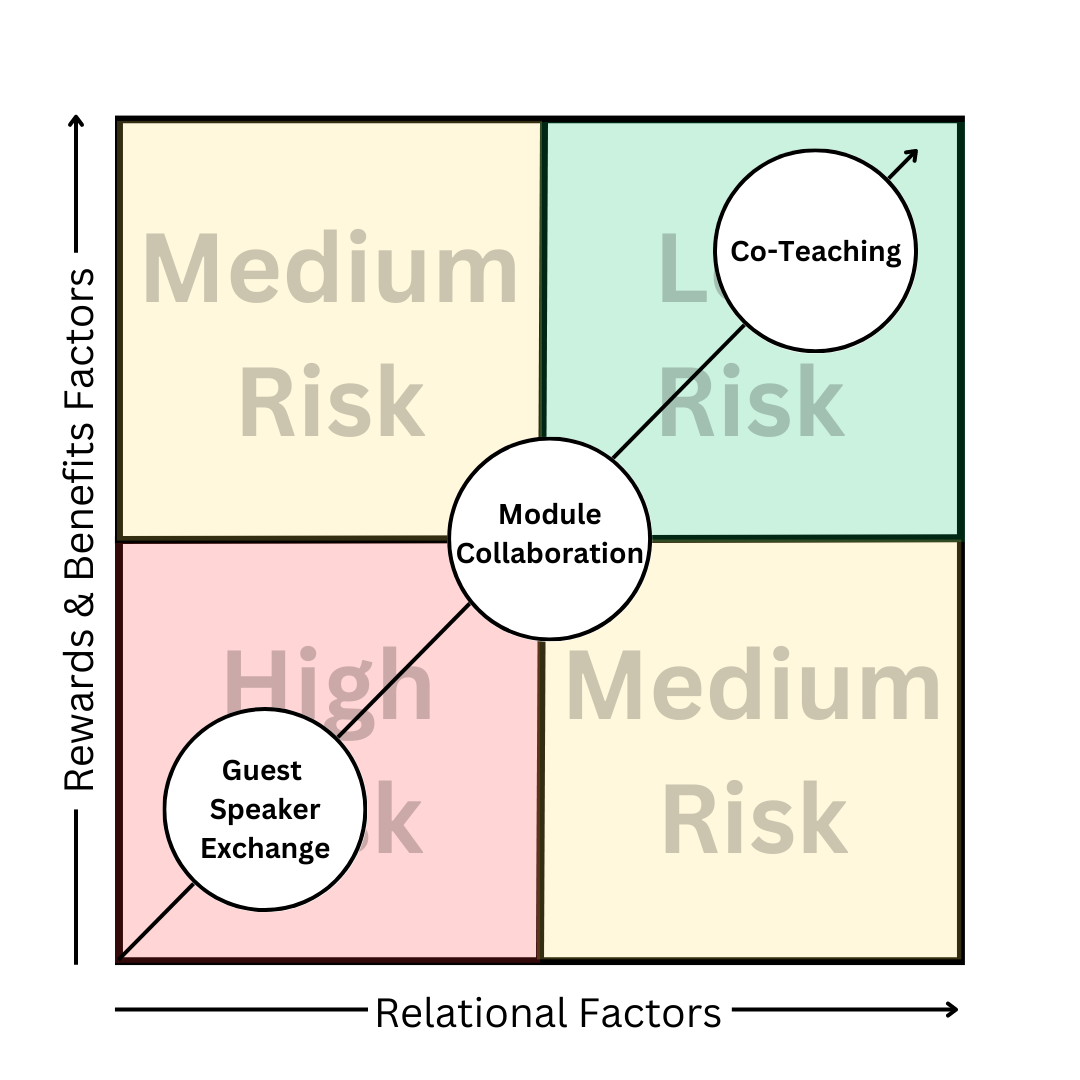Globally Networked Learning
The global engagement mission of App State is to develop awareness, knowledge, appreciation, and respect of cultural differences in both domestic and international contexts in its students, faculty, staff, and the surrounding communities.
While globally networked learning has been a valuable component of global education for many years, the pandemic – and subsequent shift to remote-learning environments – have brought increased interest to this pedagogy. Today, more than ever, it is critical to fully utilize the power of digital resources to help transform students into globally engaged citizens. Not all students are able to study abroad; nonetheless we have an obligation to prepare them to communicate across cultures, to understand the intersection of local and international topics, and to make connections between their studies and key geopolitical and social challenges.
There are many benefits to globally networked learning.
It is ACCESSIBLE. This type of global engagement is positioned to reach populations of students that might otherwise be excluded from traditional exchange programs. Similarly, it has the unique capability of facilitating connections with non-traditional study abroad destinations. With more than 66% of study abroad participants destined for Europe [IIE Open Doors 2022], global virtual exchange disrupts the trend of focusing on Eurocentric cultures and values.
Recent data suggest that 58% of global virtual exchange participants identify as students of color [Stevens Initiative 2023 Virtual Exchange Impact and Learning Report], as compared to 31.6% of traditional study abroad participants identifying as students of color [Open Doors, Fast Facts 2022].
Recent data suggest that 30% of global virtual exchange participants identify as first generation [Stevens Initiative 2023 Virtual Exchange Impact and Learning Report], as compared to 8% of traditional study abroad participants identifying as first generation [Latitudes referencing University System of Georgia research].
It should be noted that the data indicate an equal percentage (11%) among global virtual exchange and traditional study abroad for participants that identify as having a disability [Stevens Initiative 2023 Virtual Exchange Impact and Learning Report & IIE Open Doors Student Profile 2022].
It is SUSTAINABLE. With the adoption of the 2022-2027 Strategic Plan, the University aims to strengthen resilience and sustainability while at the same time advancing global engagement. Global virtual exchange allows App State to meet both of these goals by providing an opportunity to engage globally without a carbon footprint. Additionally, global virtual exchange seeks to promote interdependency and reciprocity between collaborators, thereby creating a more sustainable approach to partnership.
It is CRITICAL. With a stronger focus on cross-cultural navigation, remote collaboration, and digital literacy in the workplace, global virtual exchange programs are equipped to prepare students for success in their academic and professional goals. Additionally, survey data suggest that participation in global virtual exchanges lead to statistically significant gains in multiple global competence domains, such as knowledge of others, perspective taking, cross-cultural communication and collaboration, self-other overlap, and warm feelings towards people from other cultures [Stevens Initiative 2023 Virtual Exchange Impact and Learning Report].

Our Philosophy
- Risk Factors. The type of global virtual collaboration that you engage in will determine how risky of an endeavor you are taking. Risks could include communication issues, misalignment of goals, and varying degrees of accountability. Generally speaking, the risk factor and relational factor have an inverse relationship. With global virtual collaboration, we have found that the higher the relational factor, the lower the risk. The reason for this is that with a higher relational factor, faculty partners take the time to establish course goals, learning outcomes, pedagogies, and projects, resulting in a smoother (and less risky) exchange experience.
- Relational Factors. The type of global virtual collaboration that you engage in will determine how comprehensive your relationship with the international partner(s) is. We find that faculty who engage with international partners further along the continuum have a well-established relationship with that partner. Additionally, they often identify additional ways of engaging which serve to reinforce the relationship (i.e. research, faculty-led programs, conference co-presentations, faculty exchange).
- Rewards & Benefits Factors. As noted above, the more engaged that App State faculty are with the partner institution, the higher the reward or return on investment. This could include collaborative research opportunities, development of a faculty-led study abroad program, conference co-presentations, or establishment of a faculty exchange program.
- Guest Speaker(s). This type of engagement is often considered the simplest. App State faculty will invite a lecturer(s) from a partner institution to deliver content based on a topic relevant to the App State course. This type of collaboration serves to reinforce the course content and provides a comparative perspective of the topic or discipline.
- Module Collaboration. This type of engagement scales up the guest speaker exchange and calls upon the App State faculty member to bring in a content expert(s) from a partner institution(s) to deliver a module within the course. This type of collaboration serves to reinforce the larger course themes and provides a comparative perspective on the program of study.
- Co-Teaching. This type of engagement is often considered the most complex. App State faculty will collaborate with a faculty member from a partner institution to co-teach a course. Student participants learn together, from each other and from all faculty members. Student participants also typically collaborate on projects / research together to reinforce the cross-cultural nature of the course. App State students will then receive credit from App State while students from the partner institution will receive credit from their home institution.

